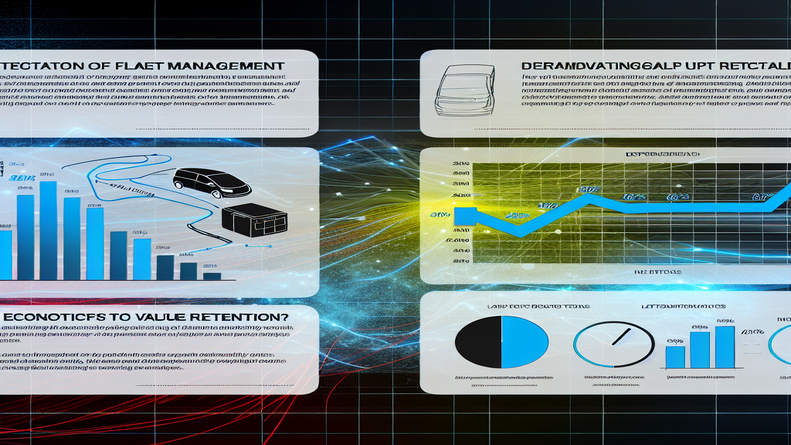In a pioneering yet challenging move, a prominent rental car company has faced a stark reality: the swift devaluation of electric vehicles (EVs) accompanied by surging repair costs, compelling the firm to liquidate a significant portion of its fleet—20,000 cars, to be precise. This seismic shift in asset management pinpoints the volatile nature of the automotive industry, which has been reshaped by the electric revolution.
A Jolt from Market Dynamics: The Devaluation Dilemma
The allure of sustainable transportation has led to an initial surge in EV adoption, yet rental companies must navigate the financial repercussions of a market where innovation outpaces EV longevity in terms of value retention. With technology advancing at breakneck speed, today’s cutting-edge models swiftly become tomorrow’s relics, accelerating depreciation and transforming fleet economics.
Repair Costs Escalating: An Unforeseen Burden
Beyond the depreciation conundrum lies another formidable challenge for the rental behemoth: the exorbitant costs of maintaining and repairing these sophisticated vehicles. EVs, with their intricate electronic systems and specialized components, pose a higher financial barrier for upkeep compared to their internal combustion counterparts. It’s not merely the scarcity of replacement parts or the need for specially trained technicians—EVs also present inherent design complexities that amplify repair expenses.
The Ripple Effect: Assessing Industry Impact
 The ramifications of such a strategic pivot extend beyond individual corporations and ripple through the entire automotive industry. This mass offloading of electric vehicles could not only influence the resale market but also send ripples across production decisions for automakers. Manufacturers and their supply chains are closely monitoring these trends, understanding that the rental sector’s procurement patterns significantly shape demand forecasts.
The ramifications of such a strategic pivot extend beyond individual corporations and ripple through the entire automotive industry. This mass offloading of electric vehicles could not only influence the resale market but also send ripples across production decisions for automakers. Manufacturers and their supply chains are closely monitoring these trends, understanding that the rental sector’s procurement patterns significantly shape demand forecasts.
Navigating the New Terrain: Innovation and Adaptation
In response to these challenges, innovation becomes the harbinger of adaptation and survival. Embracing advancements in battery technology, modular designs, and predictive analytics could provide a pathway for rental companies to mitigate depreciation risks and maintain efficient operational costs. Establishing partnerships with manufacturers and investing in research and development may lead to a more sustainable and profitable fleet composition.
The Strategic Shift: A New Fleet Philosophy
Adapting to the changing economic landscape, the rental company’s approach has shifted towards an acute assessment of vehicle lifecycles and an agile response plan. By incorporating data analytics and market forecasting, the company can make informed decisions on fleet renewal cycles and establish a balance between embracing innovation and preserving asset value.
In Conclusion: The Road Ahead for Rental Car Enterprises
The journey of car rental companies navigating the complex terrain of the EV market highlights the delicate interplay between advancement and asset management. By coupling innovative approaches with strategic planning, businesses can steer through the challenges towards a future where electric vehicles constitute a sustainable and profitable segment of a dynamic fleet. As they zoom towards such a horizon, the stakes are high, but so are the opportunities for transformative success in the shifting sands of the automotive world.Are you ready to join the movement and redefine the scope of what’s possible within your organization? Connect with me on [LinkedIn] to explore how you can harness the power of innovation and embark on a journey of unparalleled adaptability and success. 🚀🌟
